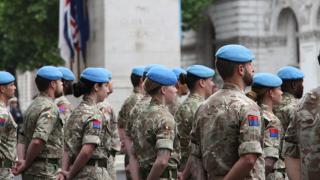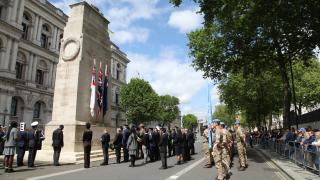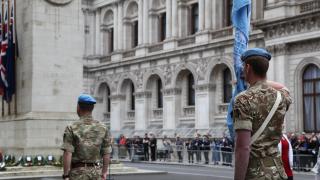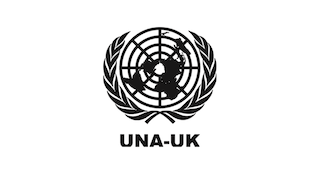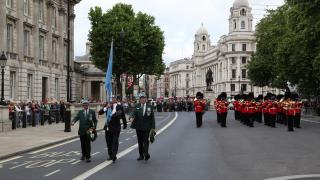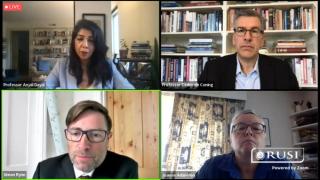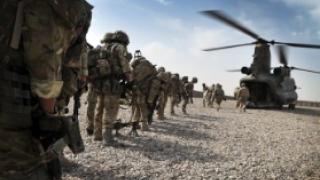
The UK Government is currently undertaking a major exercise which will establish Britain’s future approach to a range of peace and security issues. This is a unique chance for UNA-UK and our supporters to make our voices heard.
Last conducted in 2010, the National Security Strategy and Strategic Defence and Security Review will assess the risks and threats the UK faces and how best to counter them. It also aims to “ensure Britain remains a leader on the world stage and that we have the networks necessary to promote our interests, protect our people and values and to tackle threats in a domestic and international context”.
The Cabinet Office has invited members of the public to share their own views on how the UK should respond to global security issues. This is an important and rare opportunity for UNA-UK and our supporters to make the case for investing in global solutions and institutions. The more submissions we make, the better our chances of influence.
Click here to take part in the consultation
Why does it matter?
This year marks the 70th anniversary of the UN. Since 1945, the UN has had a transformative impact on the world, from the promotion of dialogue between adversaries to the creation of a stable international system.
The UN’s success, however, depends on states’ willingness to work together. The convergence of crises in recent years has demonstrated the urgent need for global action. But across the world, governments have been reluctant to respond, instead turning inwards to their domestic constituencies.
The UK has not been immune to these developments. Over the past decade, UNA-UK has witnessed the Government’s declining interest in global solutions to global problems, particularly in terms of engagement with the UN. This approach fails to recognise the implications of inaction for British citizens and the wider world.
The breakdown of the international system would have serious consequences for the UK’s national security and defence. It would also diminish the UK’s global role and standing. The UN remains an indispensable tool for realising the UK’s international objectives and support from the UK is necessary for UN initiatives to succeed.
What do we want?
UNA-UK is, therefore, calling on the UK Government to:
Invest in strengthening the United Nations
- The Government should explicitly acknowledge the importance of an effective United Nations and a healthy international system to the UK’s national security and prosperity
- The Government should commit to development a coherent and imaginative strategy for consistent action to increase the effectiveness of all parts of the UN system
Increase support for UN peacekeeping
- The Government should set out a clear rationale for its approach to UN peacekeeping
- The Government should commit to increasing its contributions of military and police personnel, as well as its civilian expertise in UN Missions and at UN Headquarters
- Government departments should cultivate an internal culture change to make sure UN peacekeeping is recognised as a desirable, career enhancing activity for military, police and civilian personnel
Prevent mass atrocities as part of the UK’s wider national security strategy
- The Government should state that the prevention of genocide, war crimes, crimes against humanity and ethnic cleansing is in the national interest and an explicit objective of UK foreign policy
- The National Security Council should define its role in preventing atrocities, including by considering how it will administer the Conflict, Stability and Security Fund and help coordinate atrocity prevention across Government
- The UK should ensure that its early warning frameworks are geared towards spotting the risk of atrocities and informing potential policy tools for tackling those risks
Work towards global nuclear disarmament and non-proliferation
- The UK should lead by example and demonstrate progress on its international obligations on disarmament under Article VI of the 1968 Non-Proliferation Treaty, including by:
- Exercising leadership within the ‘P5 process’ involving recognised nuclear-weapon states
- Fostering improved dialogue between nuclear- and non-nuclear-weapon states
- Setting out parallel strategies for managing threats identified as relevant to the UK’s nuclear weapons capability through complementary non-nuclear means
Click here to add your views to the UK’s security and defence review:

